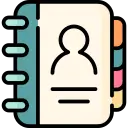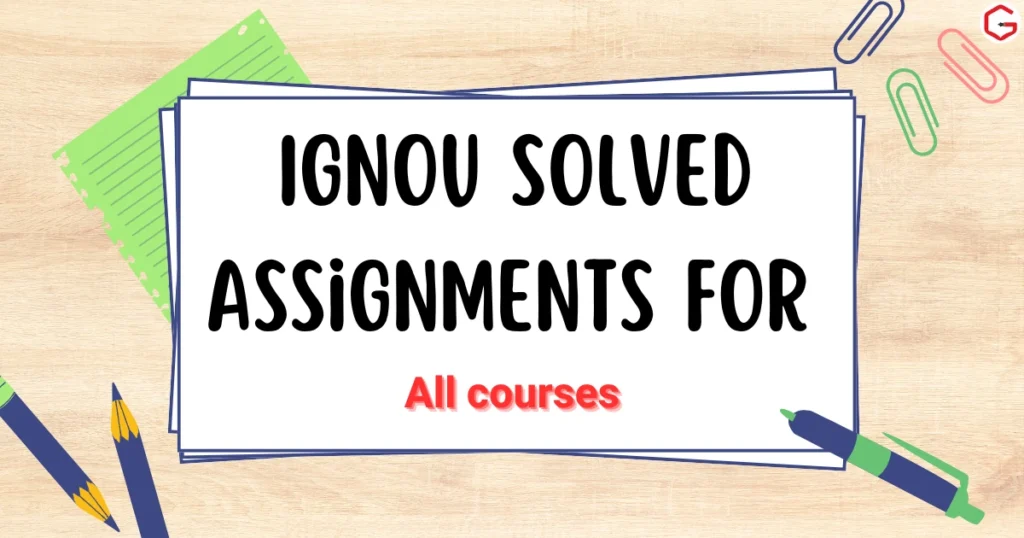BAG or Bachelor of Arts General is a college degree offered to students of the Humanities. This is one of the most famous courses among students. BAG is also a three-year degree program that can be completed with honors or passing subjects. Students pursuing it as an honors program must take at least one or more subjects as a major.
The IGNOU has adopted the Choice Based Credit System offered by the University Grants Commission for its educational session in July, 2023. As part of the Diploma degree, there is a Choice-based Credit System, which enables students to choose and examine subjects/publications depending on their interests and needs.
Highlights of the Course
Name of Program: Bachelor of Arts General (BAG)
Duration : Minimum: 3 Years
Maximum: 6 Years
Qualification Criteria: 10+2 or its equivalent
or
BPP from IGNOU
Age Bar: No Bar
Program Fees: 7,200/-
Accessible Medium: English & Hindi
Listed below Are the Courses Offered by IGNOU
If you're looking for a study option, come to GullyBaba. We have been honouring the dreams of IGNOU students since 2002 and are trusted by millions around the world who need help with their studies! Let's Know Everything You Need to Know about the IGNOU BAG - Bachelor of Arts General.
| Course Code |
Title of the Course |
No. of Credits |
| BANC 131 |
Anthropology and Research Methods |
6 |
| BANC 132 |
Fundamentals of Biological Anthropology |
6 |
| BANC 133 |
Fundamentals of Social and Cultural Anthropology |
6 |
| BANC 134 |
Fundamentals of Archaeological Anthropology |
6 |
English
| BEGC 131 |
Individual & Society |
6 |
| BEGC 132 |
Selections From Indian Writing: Cultural Diversity |
6 |
| BEGC 133 |
British Literature |
6 |
| BEGC 134 |
Reading The Novel |
6 |
| BEGLA 135 |
English In Daily Life |
6 |
| BEGLA 136 |
English At The WorkPlace |
6 |
| BEGLA 137 |
Language Through Literature |
6 |
| BEGLA 138 |
Reading And Speaking Skills |
6 |
Economics
| BECC 131 |
Principles of Microeconomics |
6 |
| BECC 132 |
Principles of Microeconomics |
6 |
| BECC 133 |
Principles of Microeconomics |
6 |
| BECC 134 |
Principles of Microeconomics |
6 |
Hindi
| BHDC 131 |
Hindi Sahitya Ka Itihaas |
6 |
| BHDC 132 |
Madhyakalin Hindi Kavita |
6 |
| BHDC 133 |
Aadhunik Hindi Kavita |
6 |
| BHDC 134 |
Hindi Gadhya Sahitya |
6 |
| BHDLA 135 |
Hindi Bahsha : Vividh Prayog |
6 |
| BHDLA 136 |
Hindi Bhasha : Lekhan Kaushal |
6 |
| BHDLA 137 |
Hindi Bhasha : Sunprekshan Kaushal |
6 |
| BHDLA 138 |
Hindi Bhasha: Vividh vidhaye |
6 |
History
| BHIC 131 |
History of India from the Earliest Times up to 300 CE |
6 |
| BHIC 132 |
History of India from C.300 to 1206 |
6 |
| BHIC 133 |
History of India from C.1206 to 1707 |
6 |
| BHIC 134 |
History of India from C 1707 to 1950 |
6 |
Mathematics
| BMTC 131 |
Calculus |
6 |
| BMTC 132 |
Differential Equations |
6 |
| BMTC 133 |
Real Analysis |
6 |
| BMTC 134 |
Algebra |
6 |
Political Science
| BPSE 141 |
Gandhi and the Contemporary World |
6 |
| BPSE 142 |
India’s Foreign Policy in a Changing World |
6 |
| BPSE 143 |
State Politics in India |
6 |
| BPSE 144 |
Introduction to South Asia |
6 |
| BPSE 145 |
Democracy and Development in Northeast India |
6 |
| BPSE 146 |
Conflict Resolution and Peacebuilding |
6 |
Psychology
| BPCE 145 |
Counselling Psychology |
6 |
| BPCE 146 |
Industrial/ Organisational Psychology |
6 |
Public Administration
| BPAE 141 |
Right to Information |
6 |
| BPAE 142 |
Organisational Behaviour |
6 |
| BPAE 143 |
Administrative System in BRICS |
6 |
| BPAE 144 |
Social Policies and Administration |
6 |
Sanskrit
| BSKC 131 |
Sanskrit Padhya Sahitya |
6 |
| BSKC 132 |
Sanskrit Gadhya Sahitya |
6 |
| BSKC 133 |
Sanskrit Natak |
6 |
| BSKC 134 |
Sanskrit Vyakrun |
6 |
| BSKLA 135 |
Sanskrit Sahitya avum Vyakrun |
6 |
Sociology
| BSOC 131 |
Introduction to Sociology |
6 |
| BSOC 132 |
Sociology of India |
6 |
| BSOC 133 |
Sociological Theories |
6 |
| BSOC 134 |
Methods of Sociological Enquiry |
6 |
Urdu
| BUDC 131 |
Study of Prose & Poetic Form in Urdu |
6 |
| BUDC 132 |
Study of Urdu Classical Ghazal |
6 |
| BUDC 133 |
Origin & Development of Urdu Language |
6 |
| BUDC 134 |
Study of Urdu Nazm |
6 |
| BUDC 135 |
Study of Modern Urdu Prose & Poetry |
6 |
DISCIPLINE-SPECIFIC ELECTIVES
Anthropology
| Course Code |
Title of the Course |
No of Credits |
| BANE 145 |
Applied Anthropology |
6 |
| BANE 146 |
Anthropology of Indigenous People |
6 |
English
| BEGE 141 |
Understanding Prose |
6 |
| BEGE 142 |
Understanding Drama |
6 |
| BEGE 143 |
Understanding Poetry |
6 |
| BEGE 145 |
Soft Skills |
6 |
Economics
| BECE 145 |
Indian Economy – I |
6 |
| BECE 146 |
Indian Economy – II |
6 |
Hindi
| BHDE 141 |
Asmita Mulak Vimarsh aur hindi Sahitya |
6 |
| BHDE 141 |
Rashtirya Kavyadhara |
6 |
| BHDE 141 |
Premchandra |
6 |
| BHDE 141 |
Chayavaad |
6 |
| BHDE 141 |
Kabir |
6 |
| BHDE 141 |
ChaayaVaadautr Hindi Kavita |
6 |
History
| BHIE 141 |
History of China: C. 1840-1978 |
6 |
| BHIE 142 |
History of Environment |
6 |
| BHIE 144 |
Traditions of History Writing in India |
6 |
| BHIE 145 |
Some aspects of European History: C. 1789 – 1945 |
6 |
Political Science
| BPSE 141 |
Gandhi and the Contemporary World |
6 |
| BPSE 142 |
India’s Foreign Policy in a Changing World |
6 |
| BPSE 143 |
State Politics in India |
6 |
| BPSE 144 |
Introduction to South Asia |
6 |
| BPSE 145 |
Democracy and Development in Northeast India |
6 |
| BPSE 146 |
Conflict Resolution and Peacebuilding |
6 |
Psychology
| BPCE 145 |
Counselling Psychology |
6 |
| BPCE 146 |
Industrial/ Organisational Psychology |
6 |
Public Administration
| BPAE 141 |
Right to Information |
6 |
| BPAE 142 |
Organisational Behaviour |
6 |
| BPAE 143 |
Administrative System in BRICS |
6 |
| BPAE 144 |
Social Policies and Administration |
6 |
Sanskrit
| BSKE 141 |
Ayurved k Mool Adhar |
6 |
| BSKE 142 |
Rungmunch Aur Naatyakla |
6 |
Sociology
| BSOE 145 |
Religion and Society |
6 |
| BSOE 146 |
Marriage, Family and Kinship |
6 |
| BSOE 148 |
Social Stratification |
6 |
Urdu
| BUDE 141 |
Study of Poet Mirza Ghalib |
6 |
| BUDE 142 |
Study of Prose Writer Meer Amman Dehlawi |
6 |
ABILITY ENHANCEMENT COMPULSORY COURSE
| Course Code |
Title of the Course |
No of Credits |
| BEVAE 181 |
Environmental Studies |
4 |
| BEGAE 182 |
English Communication Skills |
4 |
| BHDAE 182 |
Hindi Bhasha aur Sunprekshun |
4 |
SKILL ENHANCEMENT COURSES
Economics
| Course Code |
Title of the Course |
No of Credits |
| BECS 184 |
Data Analysis |
4 |
Hindi
| BHDS 183 |
Anuvaad Sidhant aur pravidhi |
6 |
| BHDS 184 |
Radio Lekhan |
6 |
| BHDS 185 |
Television Lekhan |
6 |
| BHDS 186 |
Samachar Sunklan or lekhan |
6 |
Psychology
| BPCS 184 |
School Psychology |
4 |
| BPCS 185 |
Developing Emotional Competence |
4 |
| BPCS 186 |
Managing Stress |
4 |
| BPCS 187 |
Managing Human Resources |
4 |
| BPCS 188 |
Application of Social Psychology |
4 |
Public Administration
| BPAS 184 |
Logistics Management |
4 |
| BPAS 186 |
Stress and Time Management |
4 |
Sociology
| BSOS 184 |
Techniques of Ethnographic Film Making |
4 |
| BSOS 185 |
Society through the Visual |
4 |
GENERIC ELECTIVES
Gender and Development
| Course Code |
Title of the Course |
No. of Credits |
| BGDG 172 |
Gender Sensitization: Society and Culture |
6 |
English
| BEGG 171 |
Media and Communication Skills |
4 |
| BEGG 172 |
Language and Linguistics |
4 |
| BEGG 173 |
Academic Writing & Composition |
4 |
| BEGG 174 |
Creative Writing |
4 |
Psychology
| BPCG 171 |
General Psychology |
6 |
| BPCG 172 |
Youth, Gender and Identity |
6 |
| BPCG 173 |
Psychology for Health and Well-being |
6 |
| BPCG 174 |
Psychology and Media |
6 |
| BPCG 175 |
Psychology for Living |
6 |
| BPCG 176 |
Psychology of Gender |
6 |
Public Administration
| BPAG 171 |
Disaster Management |
6 |
| BPAG 172 |
Governance: Issues and Challenges |
6 |
| BPAG 173 |
E-Governance |
6 |
| BPAG 174 |
Sustainable Development |
6 |
Sociology
| BSOG 171 |
Indian Society: Images and Realities |
6 |
| BSOG 173 |
Rethinking Development |
6 |
| BSOG 176 |
Economy and Society |
6 |
Note: Students can also download the Student's Handbook and Prospectus from the university's website at www.ignou.edu. Please note that the information provided here is partial and should not be construed as comprehensive. So, you may find that some courses are not listed here. If students have any questions about the course, they should contact the university.








